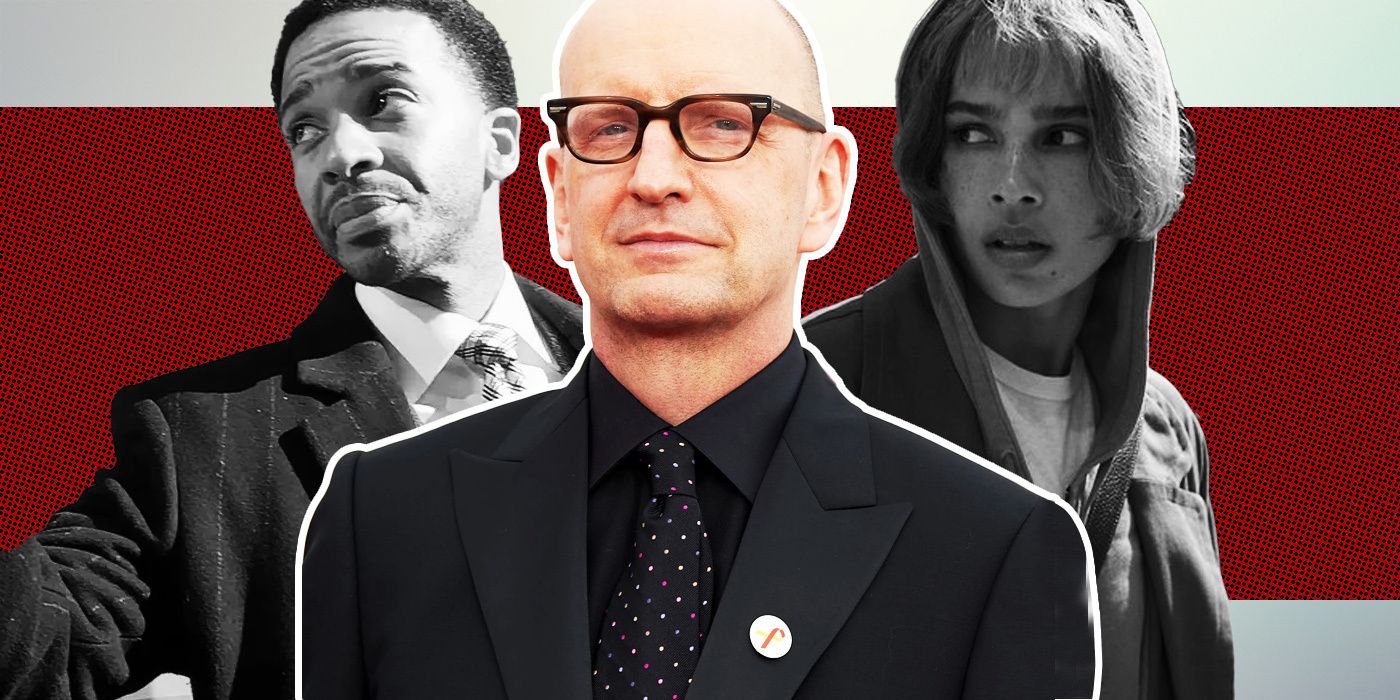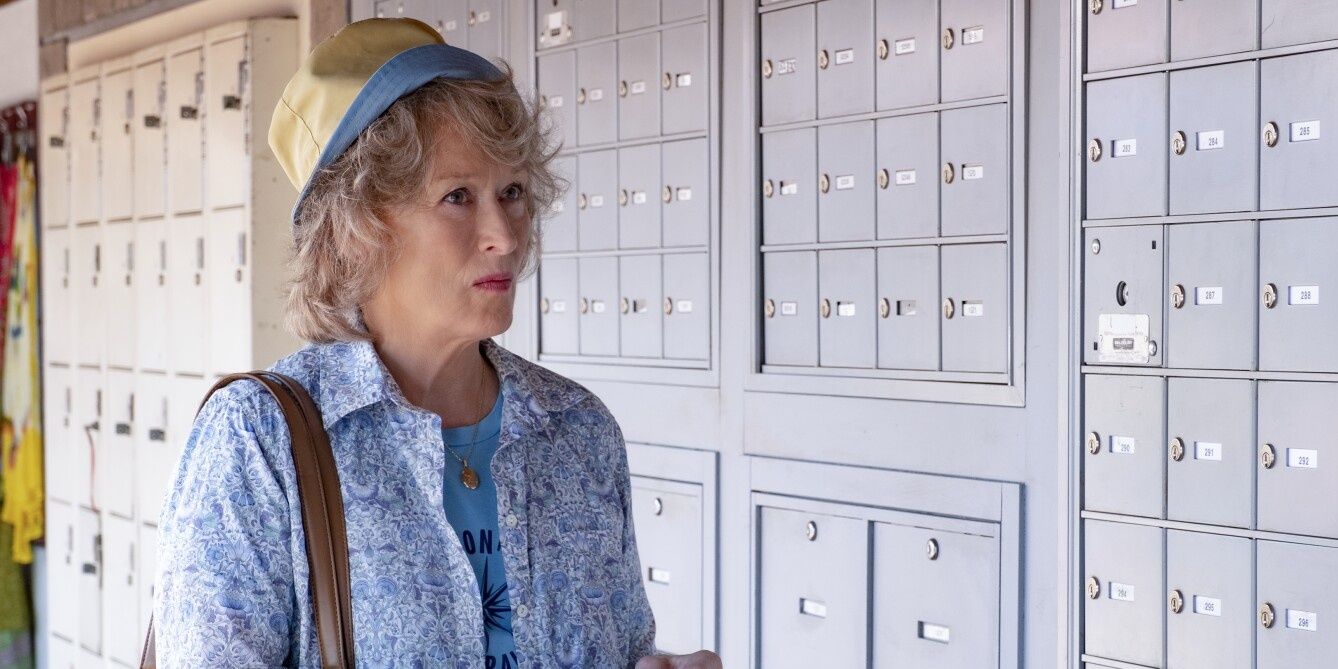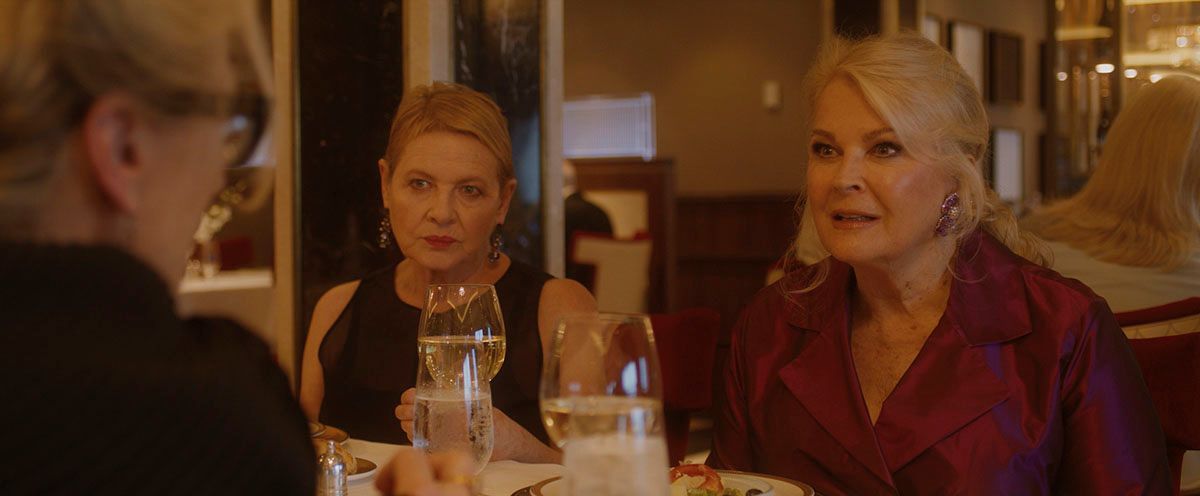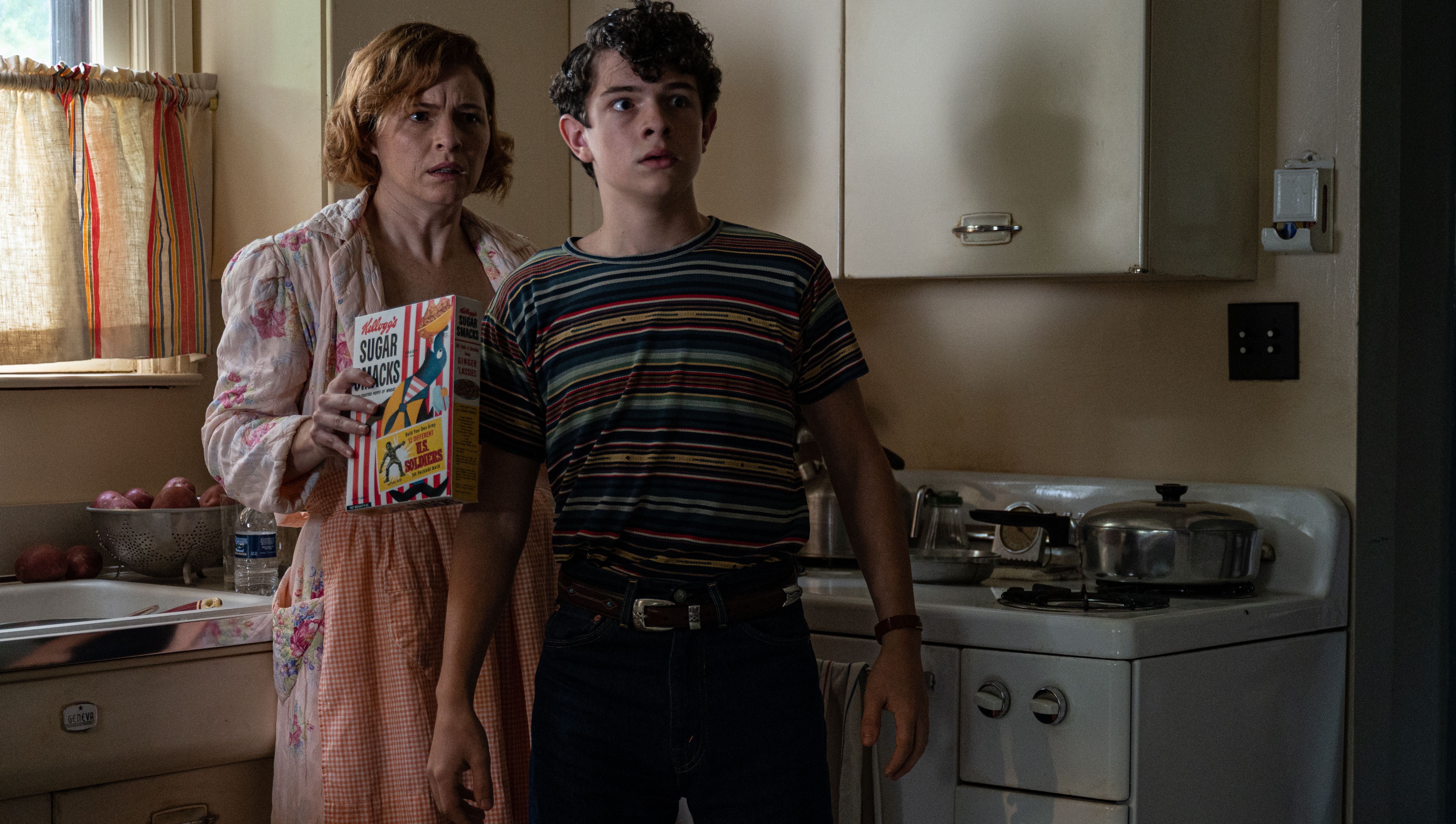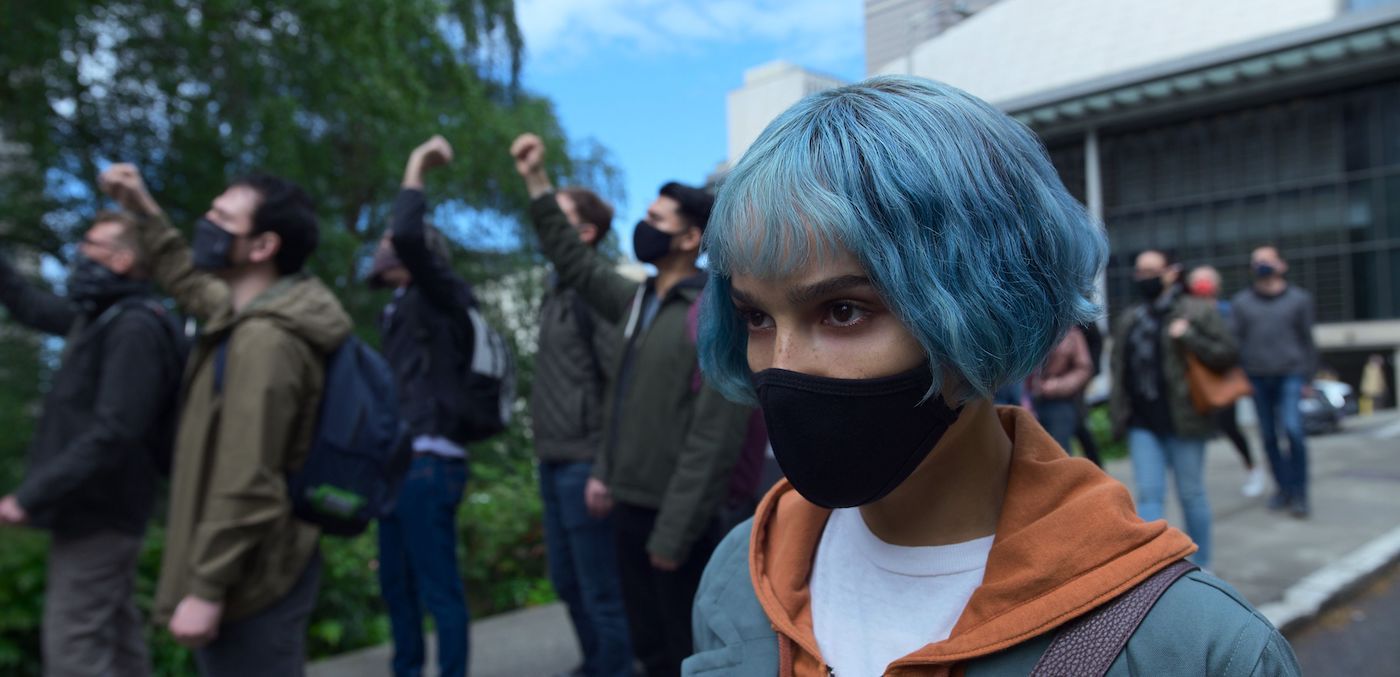Few filmmakers follow their own muse more than Steven Soderbergh. Since his Palme d'Or winning debut feature in 1989 Sex, Lies, and Videotape, Soderbergh has bumped around from genre to genre, making absolute bangers time and time again for over thirty years. He's made everything from the outrageously stylish Ocean's Eleven to the shot on iPhone psychological horror film Unsane to the experimental comedy Schizopolis, and he is still finding new ways to push himself forward as a filmmaker. Add on top of that he has been the cinematographer and editor of his films for many, many years at this point. One can't help but be inspired by the impressive ratio of volume to quality Soderbergh has managed over the course of his career.
After winning the Academy Award for Best Director in 2000 for Traffic (where he was nominated alongside himself for directing Erin Brockovich) and the massive financial success of the Ocean's trilogy, his creative impulses were not necessarily the most commercial. Movies like Haywire and Side Effects weren't making much of a dent at the box office, and the kinds of movies he wanted to make were getting more difficult. Behind the Candelabra, his biopic about Liberace starring Michael Douglas and Matt Damon, was swept away to HBO, even though it is a great film and proper awards bait because no studio wanted to take the financial risk. After Logan Lucky and Unsane had been released and done very little business, Soderbergh said to The Atlantic:
"The minute that I knew, which is usually around Friday at noon, that 'Logan Lucky' wasn’t going to work and that 'Unsane' was definitely not gonna work—as soon as that happens, the studio should let me drop the movie on a platform the next week. There should be a mechanism for when something dies at the box office like that."
Since Unsane, Steven Soderbergh has released five films within the span of three years. All five of these movies have premiered directly on streaming services. It is a fascinating era for the director, as he is making movies for very little money and truly marching to the beat of his own drum. Here, let's countdown Soderbergh's five streaming efforts, see how they stack up against one another, and how he keeps pushing himself as a storyteller.
5. The Laundromat (2019)
The one film from Steven Soderbergh's streaming era that truly just fell on its face was 2019's The Laundromat, his second (and to date final) film for Netflix. While boasting an all-star cast that includes Meryl Streep, Antonio Banderas, Gary Oldman, Sharon Stone, Jeffrey Wright, and Will Forte, this examination of the story of the Panama Papers tries to do so much and doesn't really accomplish much of anything. It is presented more in the tradition with the recent output of Adam McKay, with films like The Big Short and Don't Look Up, than anything else, with breaking of the fourth wall, graphics, and all that stuff that makes those films kind of annoying as well. At least McKay's anger and brashness come from the same place, whereas Soderbergh and screenwriter Scott Z. Burns are certainly angry, but the brashness does not suit them well. Also, the movie features Meryl Streep in brownface as a Panamanian woman named Elena, and there's just absolutely no excuse for that.
4. Let Them All Talk (2020)
Forgive me, Meryl, for putting your two collaborations with Steven Soderbergh at the bottom. That being said, 2020's Let Them All Talk, where Soderbergh had moved from Netflix to HBO Max, is a major step up from The Laundromat. The film stars Streep as an ailing writer making her way from the United States to the United Kingdom on the Queen Mary II ship, as she is unable to fly because of her health. Along on the trip with her are her nephew (Lucas Hedges), her agent (Gemma Chan), and two old friends she has not spoken to in a long time (Candice Bergen and Dianne Wiest). The film is an extremely low-key, mostly improvised comedy about regrets, aging, and hoping for second chances. Candice Bergen gives a performance that should have been in the conversation for Best Supporting Actress, though HBO Max really did not know how to market this movie or put it in proper awards consideration during the pandemic. It's a strange, little movie, but certainly a charmer.
3. No Sudden Move (2021)
If there is a genre that Soderbergh has pretty much perfected, it is the crime film. No Sudden Move is yet another example as to why. What begins as a simple job for Don Cheadle's Curt and Benicio del Toro's Ronald for some easy cash in 1954 Detroit turns into a story that features twist after twist, double cross after double cross, and it all ends up being a diatribe about car companies deliberately silencing information about the cataclysmic effects pollution causes to the environment. Once again, Soderbergh pulls out all the stops when assembling a cast, as Kieran Culkin, David Harbour, Amy Seimetz, Brendan Fraser, Ray Liotta, Julia Fox, Noah Jupe, Jon Hamm, Bill Duke, and an absolutely fantastic uncredited Matt Damon join Cheadle and del Toro here. Much of the movie is shot with extremely wide lenses, bordering on fish eye, giving every moment a slightly queasy feeling. It blends have a rip-roaring good time watching a crime picture with some really important messaging about corporate corruption. A real "they don't make them like this anymore" movie.
2. KIMI (2022)
Speaking of "don't make them like this anymore," we have Soderbergh's newest film KIMI. Here, we have a real throwback genre in the surveillance paranoia thriller. Zoë Kravitz stars as Angela, an agoraphobic woman who works for a giant tech company who have created the Alexa-style device Kimi. She analyzes recordings of people's Kimi commands and updates the data for things like regionalisms, song titles, and other ways to improve the algorithm. One stream, she hears something particularly disturbing, possibly a woman being assaulted or worse. For various reasons, some people don't want this information to see the light of day. Kimi is a proper crackerjack motion picture, filled with tense sequences all the way through and a commanding central performance from Zoë Kravitz. Her physicality and expression of past trauma creates this person who you so desperately want to root for. Beyond the thrills, Kimi has a lot to say about the good and bad of our over reliance on technology, women in the workplace, and living life during COVID, which the film acknowledges and takes place during. For whatever reason, Kimi did not receive a ton of fanfare before its release, but you can check it out on HBO Max right now. It is well worth your time.
1. High Flying Bird (2019)
Steven Soderbergh's first film in his streaming era is his best film, as well as being one of the best of his career in general. High Flying Bird takes the caper/heist structure of what has made so many of his best films and places it onto a setting one would never think, the NBA. André Holland plays a sports agent trying to keep his clients signed while the NBA is in a lockout. Written by Moonlight playwright Tarell Alvin McCraney and shot on an iPhone 8, High Flying Bird plays such a wonderful magic trick on you, as the film's caper nature only ever sneaks up on you towards the end of the film. You have been spending so much time trying to figure out the character relationship dynamics and how the business treats Black athletes, but when you realize what has been going on the entire time, the elation is unmatched. Interspersed throughout the film are interviews with NBA players Karl-Anthony Towns, Donovan Mitchell, and Reggie Jackson about their experiences coming into the league that give the film a whole new added dimension. High Flying Bird is one of those movies that would never be able to get made if a theatrical release was in play, as it would make approximately $36, but it could not be more worth your time.
Steven Soderbergh's streaming era may not have altered the fact that his name being on a film's poster means it is an event or generated awards buzz, but streaming has really allowed him to make whatever he wants. Great people want to work with him, his films don't cost a lot of money, and streaming services want as much on their platforms as possible. He has the ability to take chances and has made some great films with those chances. Streaming isn't going away anytime soon, and I hope Steven Soderbergh doesn't go away from it anytime soon either. Although, if they want to put these movies in a theater occasionally, that would be great too.

